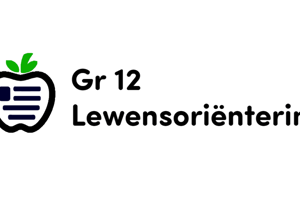Podcast
Questions and Answers
What is the primary focus of civics as defined in the content?
What is the primary focus of civics as defined in the content?
- Environmental protection policies
- Economic systems and their implications
- Political theory and governance structures
- Rights, duties, and responsibilities of citizens (correct)
According to John Dewey, what does civics help individuals understand?
According to John Dewey, what does civics help individuals understand?
- Economic theories related to social welfare
- Different forms of government and their effectiveness
- The impact of globalization on local communities
- Their role in the community and the importance of participation (correct)
How does civics contribute to preserving democracy?
How does civics contribute to preserving democracy?
- By focusing solely on economic advantages of citizenship
- By providing knowledge and making citizens aware politically (correct)
- By creating exclusive clubs for informed citizens
- By encouraging individuals to avoid critical discussions
What is the definition of a community as described in the content?
What is the definition of a community as described in the content?
Which function of family is categorized under bio-psychological functions?
Which function of family is categorized under bio-psychological functions?
What aspect of social life does Kingsley Davis connect with community?
What aspect of social life does Kingsley Davis connect with community?
Which of the following is NOT listed as an importance of civics?
Which of the following is NOT listed as an importance of civics?
What is a primary characteristic of a rural community according to the content?
What is a primary characteristic of a rural community according to the content?
What aspect of civic education helps build a strong sense of collaboration among citizens?
What aspect of civic education helps build a strong sense of collaboration among citizens?
Which definition accurately describes a community according to Kingsley Davis?
Which definition accurately describes a community according to Kingsley Davis?
Which of the following is NOT a function of family as a social institution?
Which of the following is NOT a function of family as a social institution?
Which statement best describes the importance of civics in society?
Which statement best describes the importance of civics in society?
What concept emphasizes the need for individuals to interact in society?
What concept emphasizes the need for individuals to interact in society?
Which of these best illustrates the interdependence aspect of society?
Which of these best illustrates the interdependence aspect of society?
Which of the following describes a key characteristic of an urban community?
Which of the following describes a key characteristic of an urban community?
What does the concept of Civic Virtue primarily emphasize in citizens?
What does the concept of Civic Virtue primarily emphasize in citizens?
Flashcards are hidden until you start studying
Study Notes
Civics
- "Civics" comes from the Latin word "Civicus" meaning "city" or "related to citizens."
- It's basically the study of citizens' rights, responsibilities, and how they relate to the government.
- John Dewey emphasizes civic studies help people understand their roles in communities, the importance of participation in democracy, and how democratic institutions function.
Importance of Civics
- Sense of Rights and Responsibilities: Civics helps citizens understand their rights and responsibilities within society.
- Knowledge about Social Issues: Civics equips citizens with knowledge and understanding of social issues like political instability, corruption, and economic challenges (e.g., inflation).
- Promotes Social Cohesion: Civics fosters mutual respect, cooperation, and understanding, contributing to social cohesion.
- Empowers Citizens: By providing knowledge and developing participation skills through civics, citizens are empowered.
- Preserves Democracy: Informed and politically aware citizens are crucial for preserving democratic systems.
- Supports Rule of Law: Civics promotes respect for legal processes and judicial decisions, supporting the rule of law.
- Cultivates Civic Virtue: Civics cultivates a sense of duty, honesty, and integrity—the core values of civic virtue.
Main Concepts of Civics
Individuals
- Humans by nature are social creatures.
- Interaction with others is a fundamental aspect of human existence.
- Society plays a vital role in human mental and intellectual development.
Society
- Groups of individuals interacting form social groups.
- Interactions between these social groups create society.
- Sociologist Talcott Parsons defines society as "A system of total complex human relationships."
- Key factors include population, similarities, differences, interdependency, cooperation, and conflict.
Family
- A family is a group of two or more people related by blood, marriage, or adoption living together.
Functions of Family as a Social Institution
- Bio-Psychological Functions: Reproduction, providing food, housing, and clothing, ensuring security and care.
- Socio-Economic Functions: Division of labor, generating income, managing property, providing education and healthcare.
- Cultural and Religious Functions: Transmitting cultural values, fostering religious beliefs, and providing entertainment.
Community
- A community consists of people living together within a defined geographical area with shared interdependence.
- Sociologist Kingsley Davis defines a community as "a group of people that lives in a certain territory that embraces all aspects of social life."
- Key features include locality, shared life, common interests, a sense of community spirit, and a specific name.
Types of Communities
- Rural Community: Villages where agriculture is the primary means of production, lacking essential facilities.
- Urban Community: Cities, characterized by business and commerce, offering more amenities and services.
Introduction to Civics
- Civics is the study of citizen rights, duties, and responsibilities in relation to government.
- John Dewey defines civics as understanding one's role in the community, the importance of participation, and the functioning of democratic institutions.
Importance of Civics
- Promotes understanding of rights and responsibilities.
- Provides awareness of social issues like political instability, corruption, and inflation.
- Fosters social cohesion through mutual respect, cooperation, and understanding.
- Empowers citizens by providing knowledge and skills for participation.
- Preserves democracy by ensuring informed and politically aware citizens.
- Supports the rule of law through respect for legal processes and judicial decisions.
- Cultivates civic virtue by promoting a sense of duty, honesty, and integrity.
Main Concepts of Civics
- Individuals:
- Humans are social beings, requiring interaction for mental and intellectual development.
- Society:
- Individual interactions lead to social groups, which then form society.
- Talcott Parsons described society as a complex system of human relationships.
- Society involves population, similarities, differences, interdependence, cooperation, and conflict.
Family
- A family is a group of two or more people related by blood, marriage, or adoption residing together.
Functions of the Family as a Social Institution
- Bio-Psychological Functions: Reproduction, provision of food, housing, and clothing, security and care.
- Socio-Economic Functions: Division of labor, source of income, property, education, and healthcare.
- Cultural and Religious Functions: Transmission of culture, sense of religion and faith, and entertainment.
Community
- A community is a group of people living in a specific geographic area, interdependent on each other.
- Kingsley Davis defined it as a group of people in a particular territory that embraces all aspects of social life.
- Key facets of a community include locality, shared life, common interests, community sentiment, and a specific name.
Types of Communities
- Rural Community: Villages with agriculture as the primary means of production, often lacking basic facilities.
- Urban Community: Cities with businesses, industries, and diverse populations.
Studying That Suits You
Use AI to generate personalized quizzes and flashcards to suit your learning preferences.




